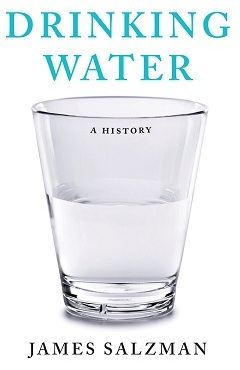Category Archives: History
Drinking Water
As seen on nytimes.com:
Four Books Explore Humans’ Relationship With Water
By CORNELIA DEAN
Published: October 7, 2013
Earth, “the blue planet,” has a lot of water. Most of the planet’s surface is covered with it. But less than 5 percent of that water is fresh, and much of that is locked up in ice sheets or inconveniently far underground. And it is not always most abundant where it is most needed.
As a result, we are drawing on underground aquifers faster than they can recharge. And the water we have is often polluted by sewage, industrial waste, parasites and other contaminants that can make “natural” water unsafe to drink.
In short, as James Salzman puts it in “Drinking Water,” one of four new books that dive into our species’ relationship with water, clean supplies have always been the exception, not the norm. As recently as 1900, he writes, 1 in 70 Americans died of a waterborne disease before age 70.
Though he ranges widely, Mr. Salzman, who teaches law and environmental studies at Duke, focuses on what one might call social justice. Access to water may be viscerally regarded as a “right,” but he points out that the best way to ensure a reliable supply of pure water, especially in poor regions, is often to privatize it.
Reviews for Drinking Water by James Salzman
As seen on standard.co.uk:
Just add H2O to shape humanity’s past, present and future
03 January 2013
Drinking Water: a history
by James Salzman
In 2010 the United Nations passed a resolution declaiming that “safe and clean drinking water” was a universal human right. A noble sentiment but words that gurgle straight down the plughole since the UN also estimates that half the world’s population will live in “water scarce areas” by 2030. The point the well-hydrated delegates were trying to get across is that the liquid we have seen more than enough of recently is in fact scarce and getting scarcer.
James Salzman’s book is a look at this everyday commodity most of us take for granted and which proves, on further examination, to be far from unremarkable after all. Salzman is American so the majority of his examples come from that side of the Atlantic; nevertheless, there is more than enough floating about in this book to satisfy a thirst for detail.
Cultural, Historical, and Political Implications of Water
As seen on WUNC.org:
Drinking Water
Thursday, November 29 2012 by Frank Stasio and Nicole Campbell
When your body’s feeling crummy, someone will likely tell you to remedy it by drinking more water. Whether it’s for clearer skin or lower anxiety, people have a lot of faith in the healing power of this liquid. But water isn’t a plentiful cure-all everywhere. For many people living in places bordered by water masses, it’s hard to gain access to this necessity. In his latest book, “Drinking Water: A History” (The Overlook Press/2012), James Salzman explores the cultural, historical and political implications of water around the world. James Salzman is a professor in environmental policy at Duke University’s School of Law, and he joins host Frank Stasio today in the studio.
To listen to the audio, click here.




